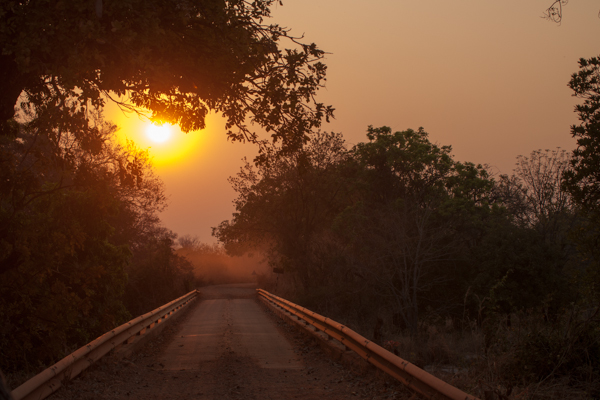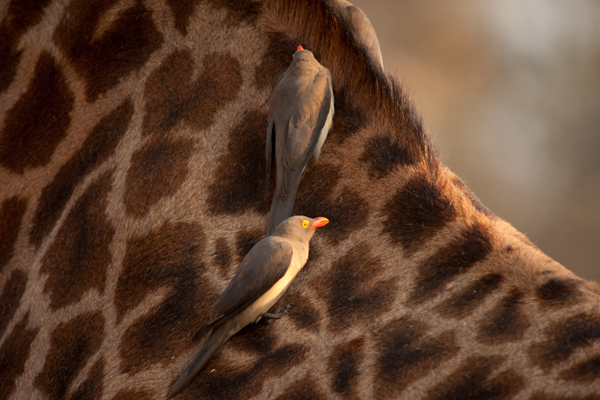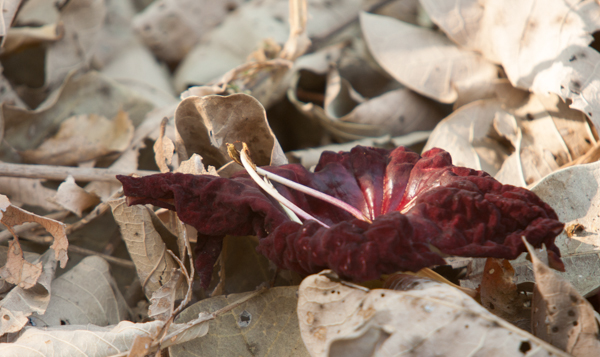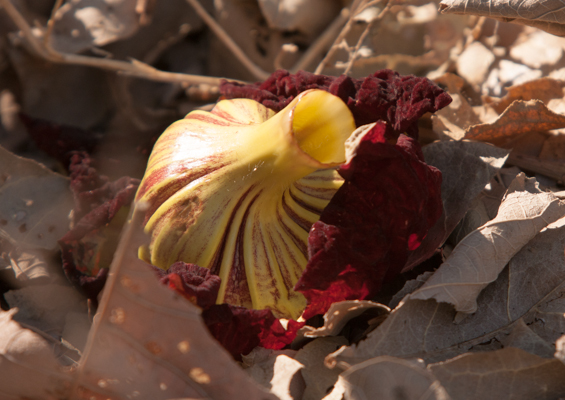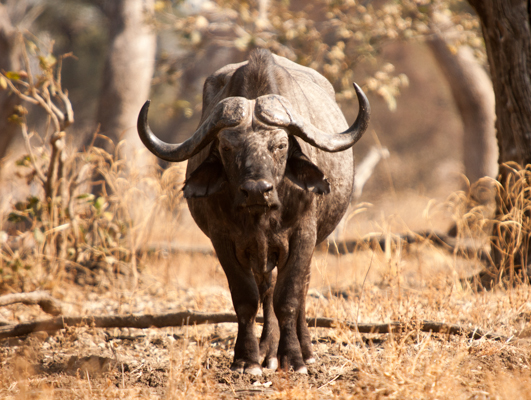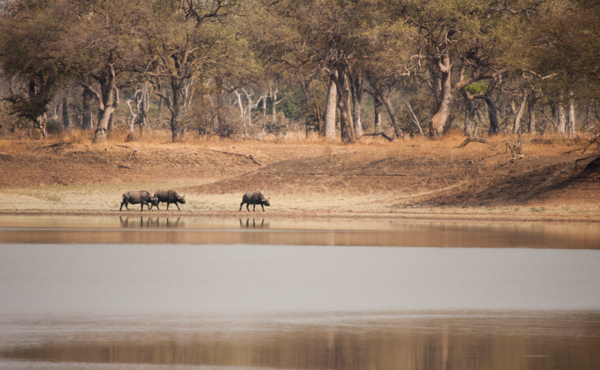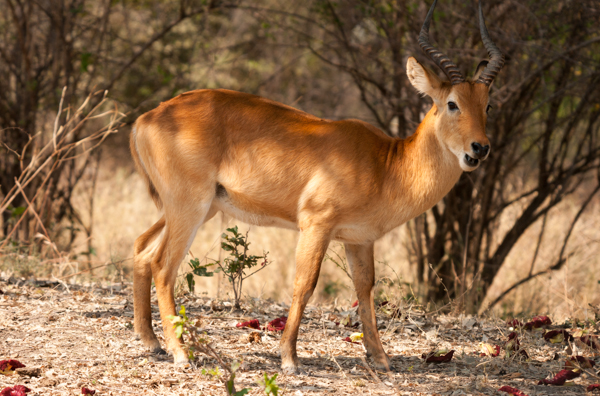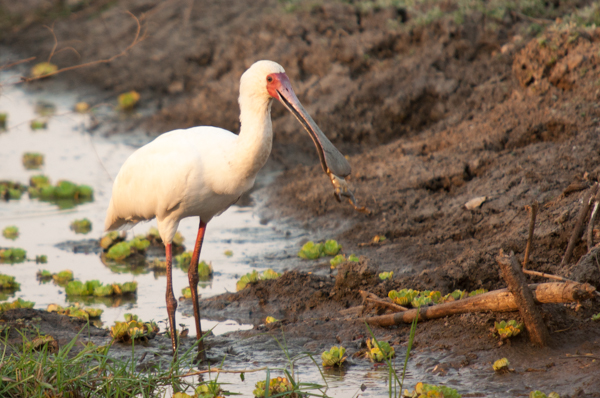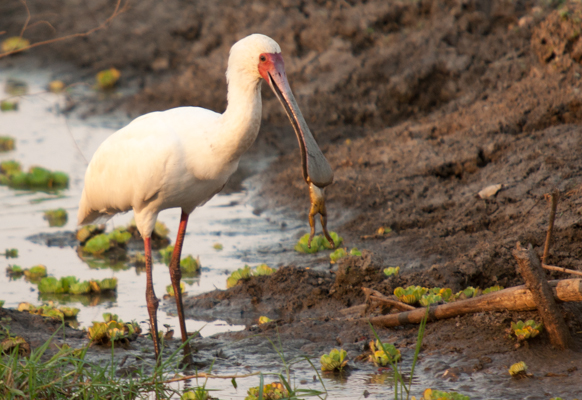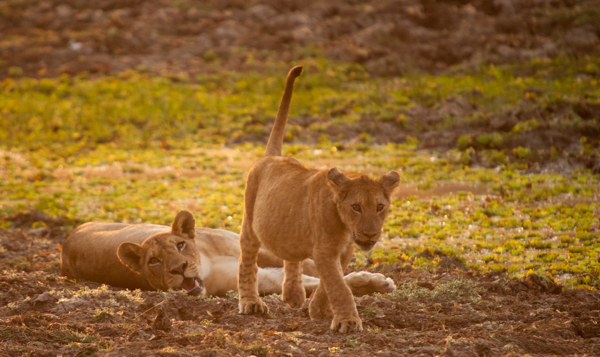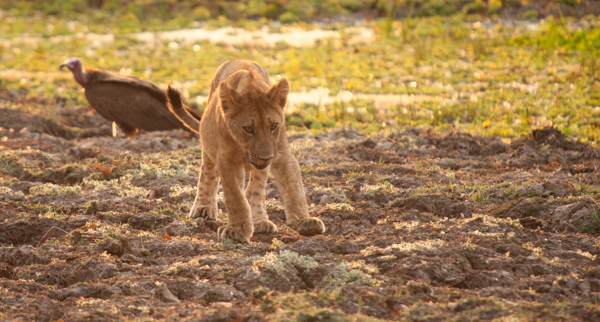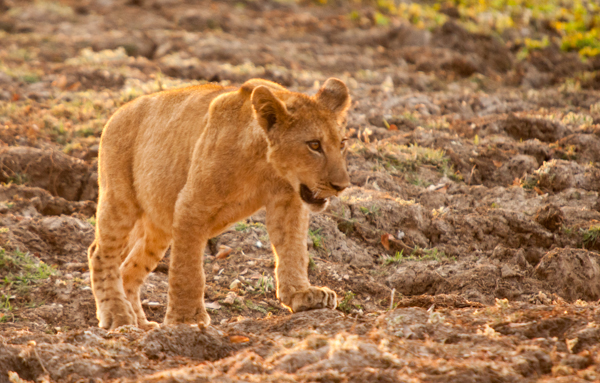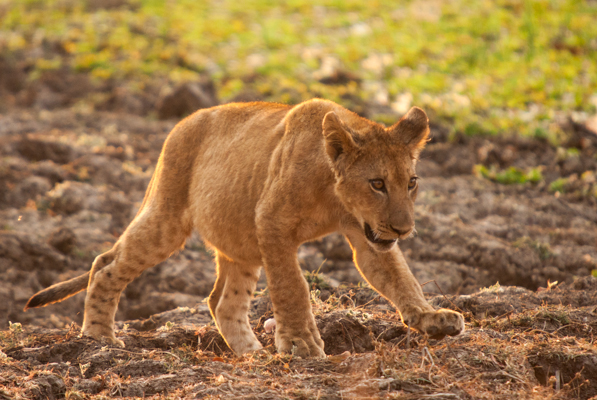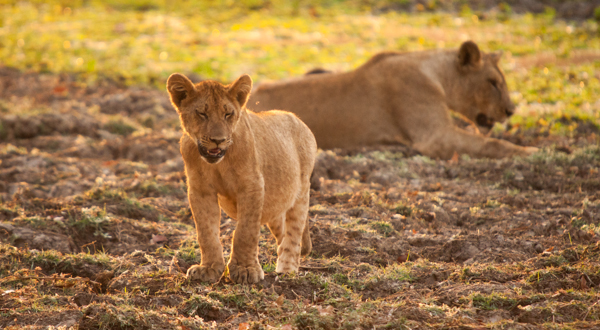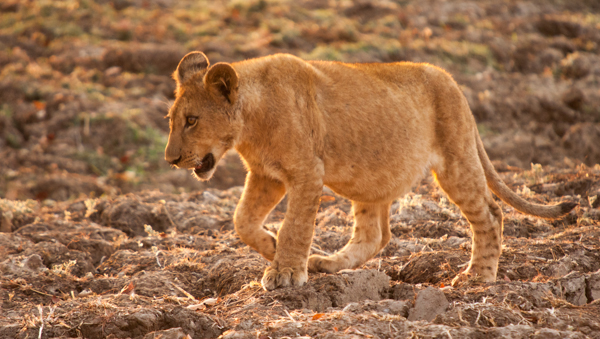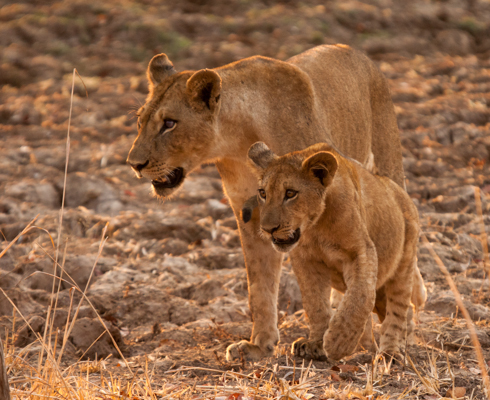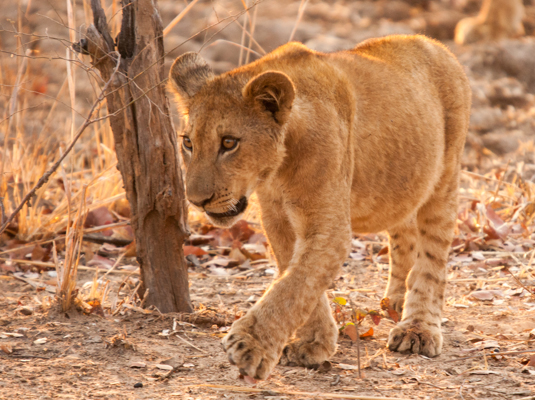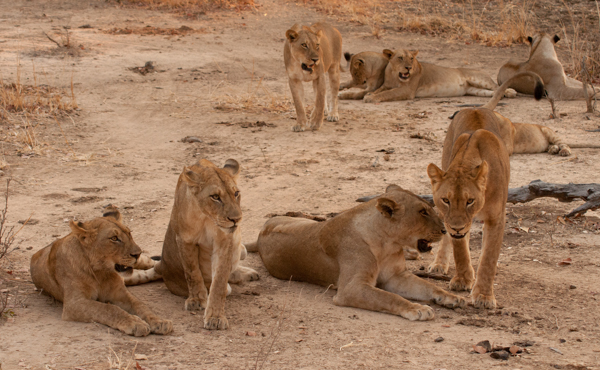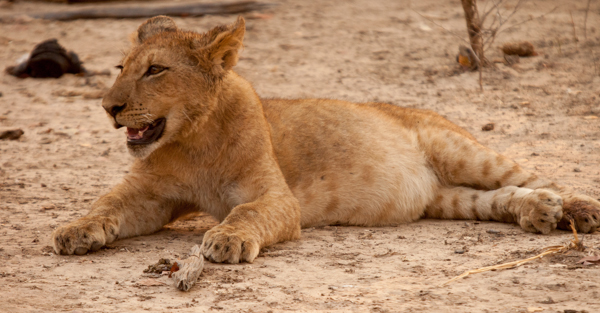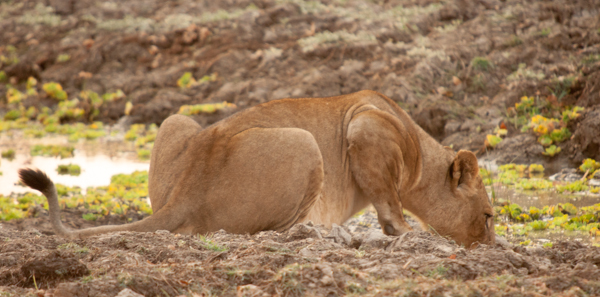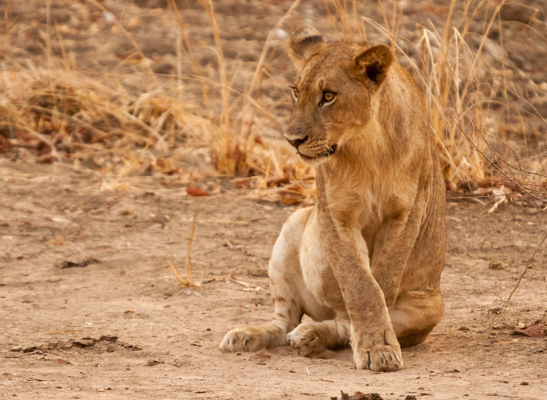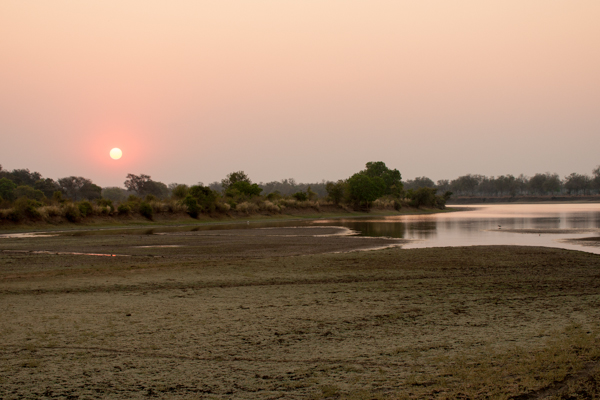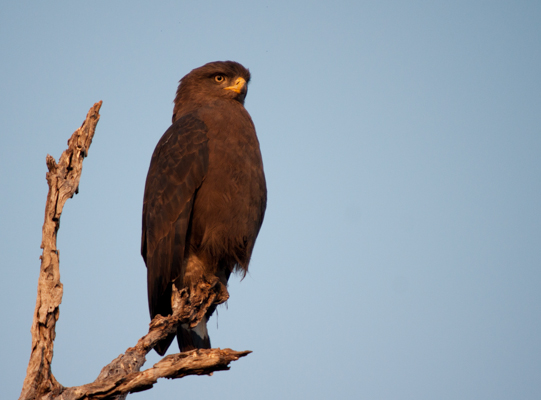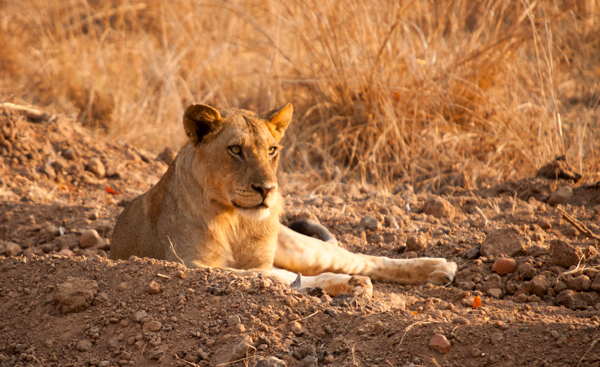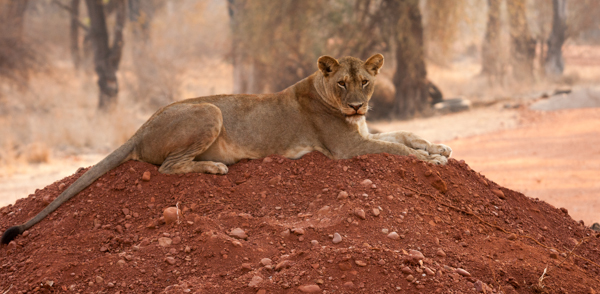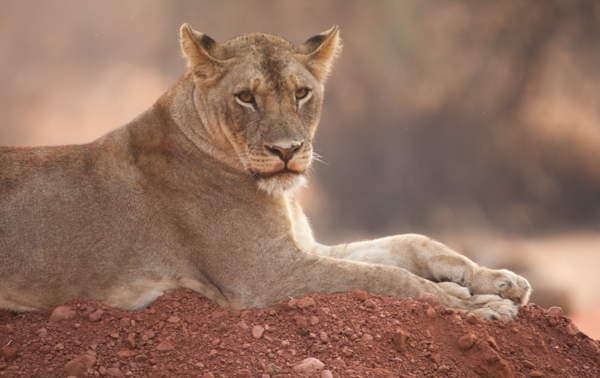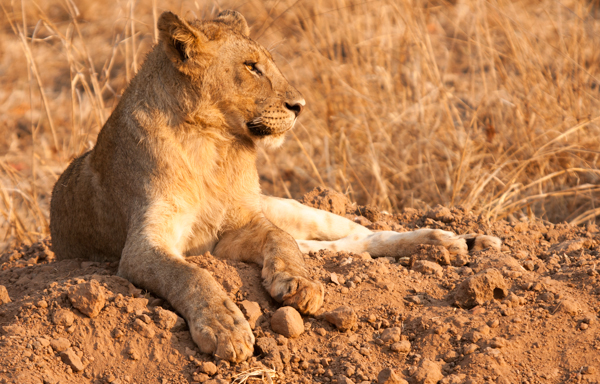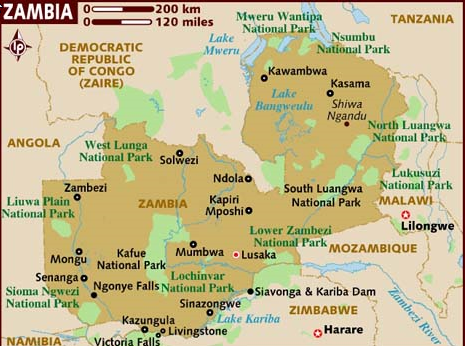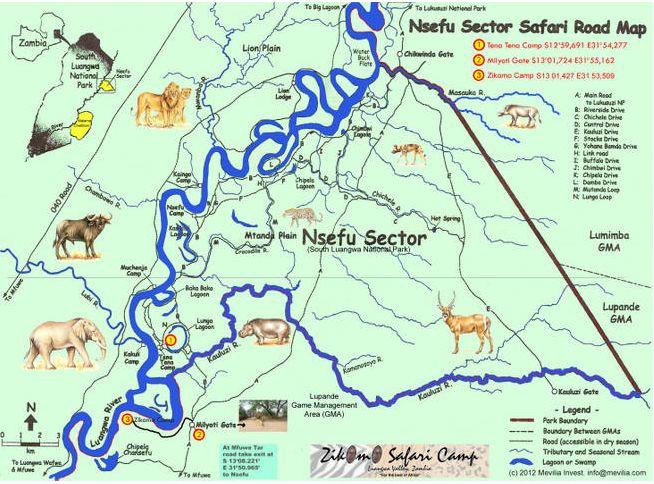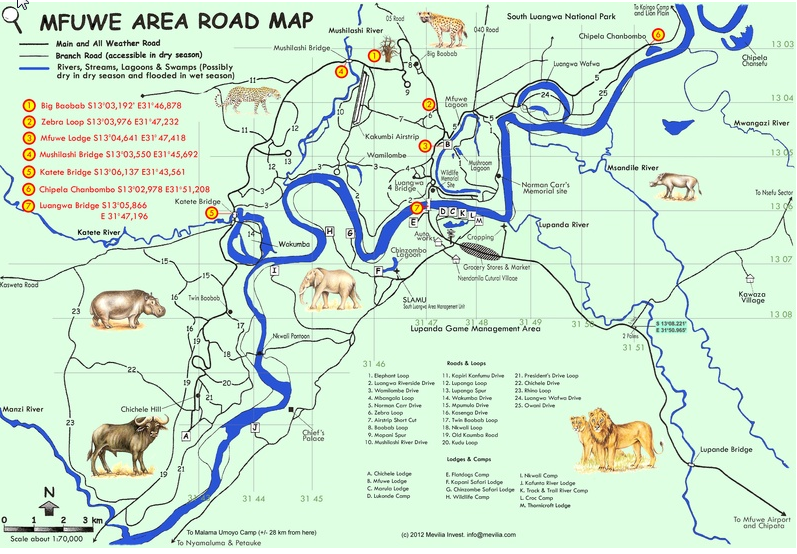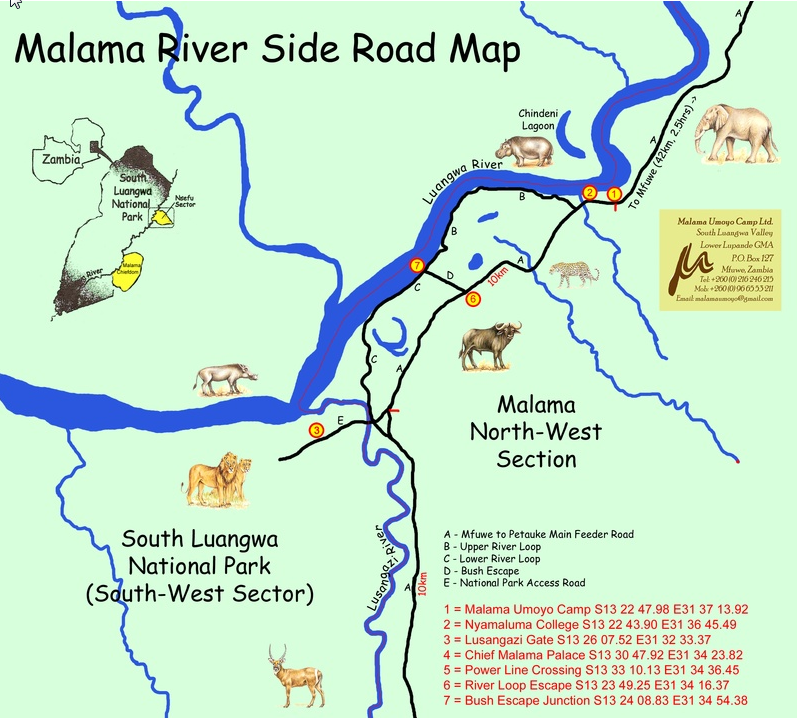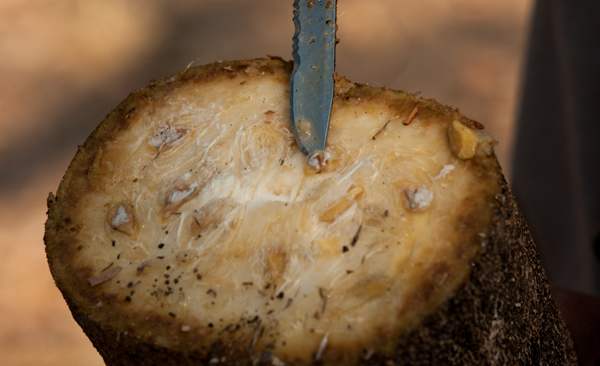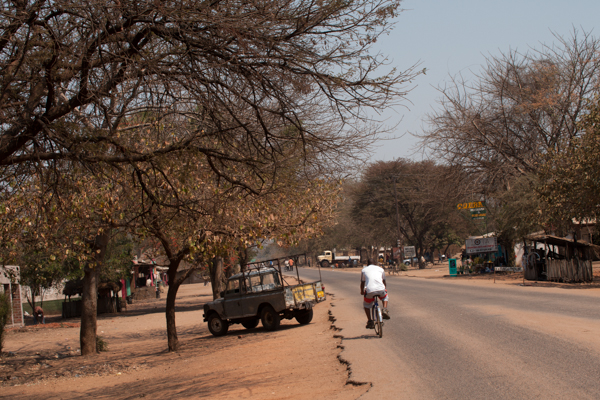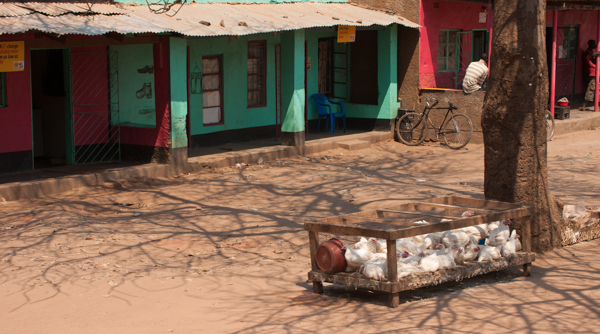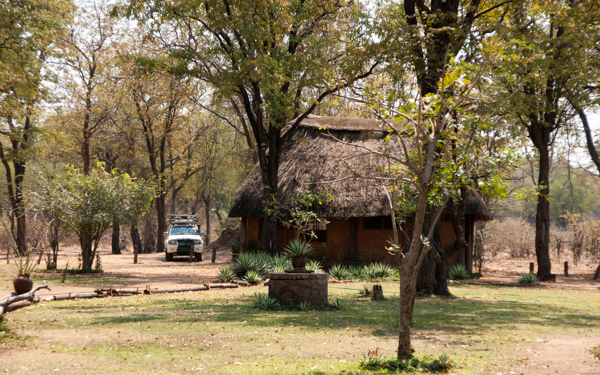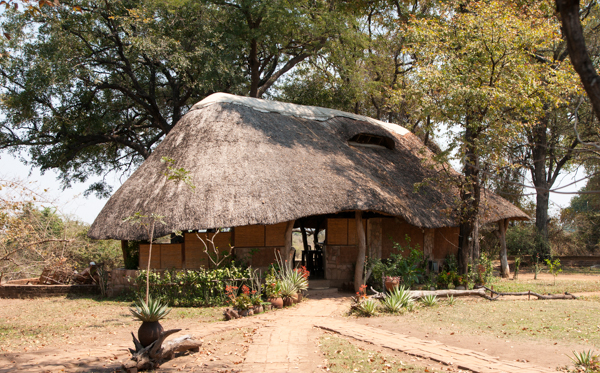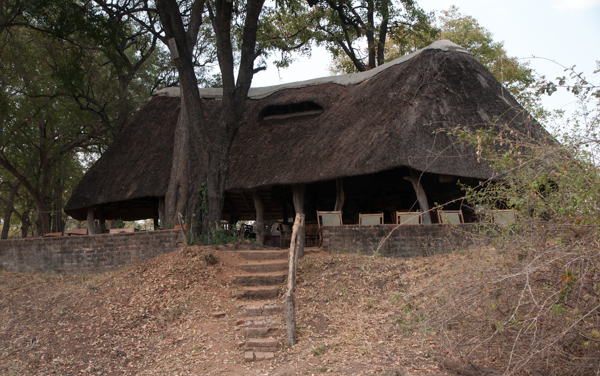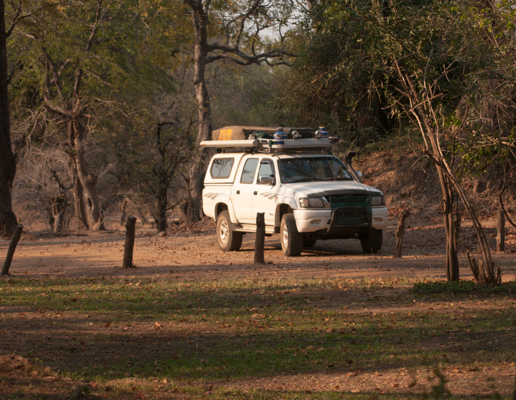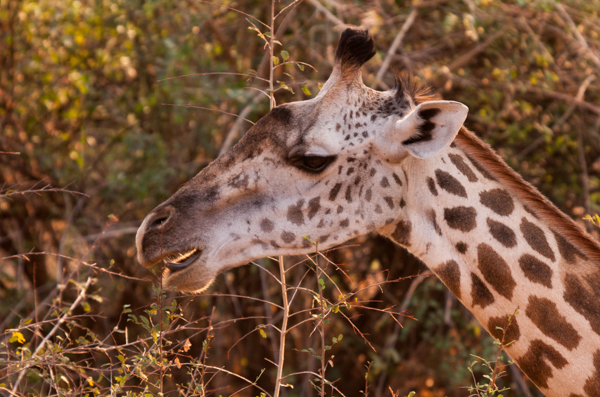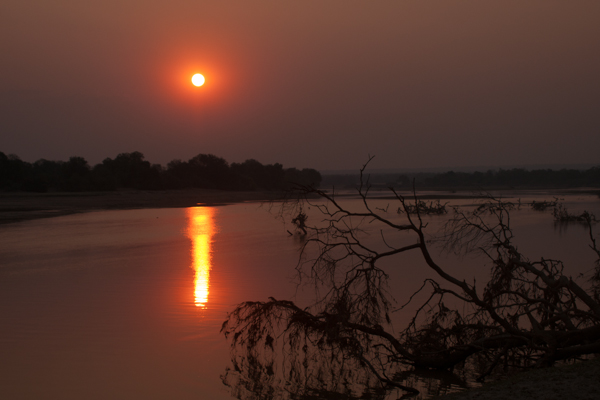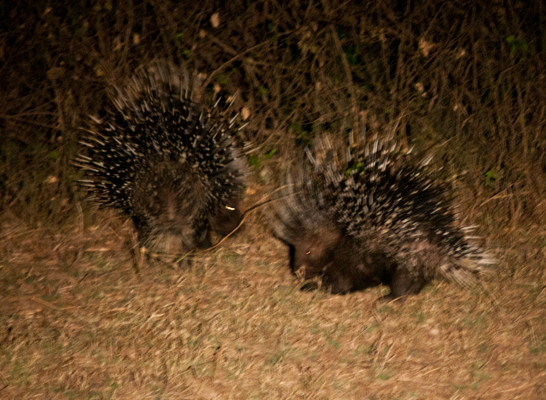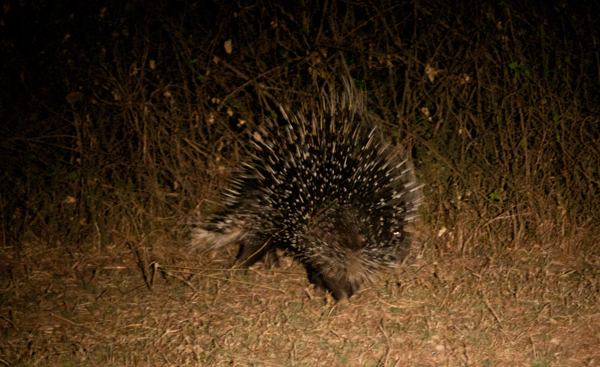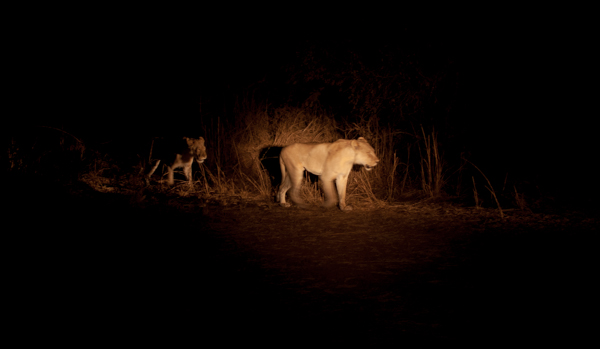The seasonal floodplains create an environment that supports a huge diversity of wildlife including over 100 species of mammals and over 470 species of birds as well as many reptiles, insects, amphibians and plants. A totally different experience from parks elsewhere in Africa, Luangwa offers a real immersion to the bush life in an attractive habitat of sausage trees and ox-bow lagoons.
The park is reputed to have the highest concentration of leopard in Africa. Pods of up to 300 hippos are possible to view in the dry season as the river shrinks and they are confined to areas of deep pools. The park’s elephant population is very healthy and it is the best place in Africa to see Puku. Large herds of buffalo move between the river and their grazing grounds and are often followed by lion. Zebra, waterbuck, impala, baboons and warthogs share the open plains with kudu and giraffe
The area now known as South Luangwa National Park was originally established to protect the thornicroft’s giraffe, a subspecies that can only be found in the Luangwa Valley.
The Luangwa River is the most intact major river system in Africa and is the life-blood of this 9059 km2 Park. The Park hosts a wide variety of wildlife, birds and vegetation. The now famous ‘walking safari’ originated in this Park and is still one of the finest ways to experience Africa’s pristine wilderness first-hand. The changing seasons add to the Park’s richness, ranging from; dry, bare bushveld in the winter, to a lush, green wonderland in the summer months. There are 60 different animal species and over 400 different bird species in South Luangwa National Park.
The only notable exception is the rhino, sadly poached to extinction.
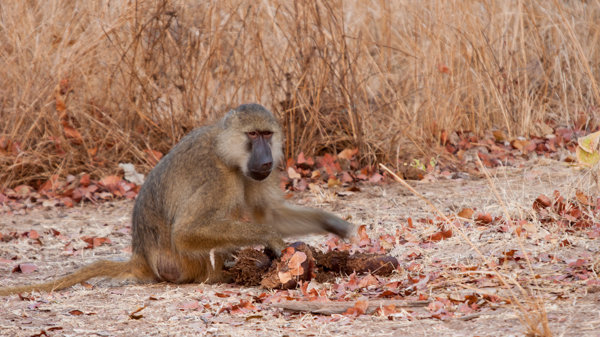
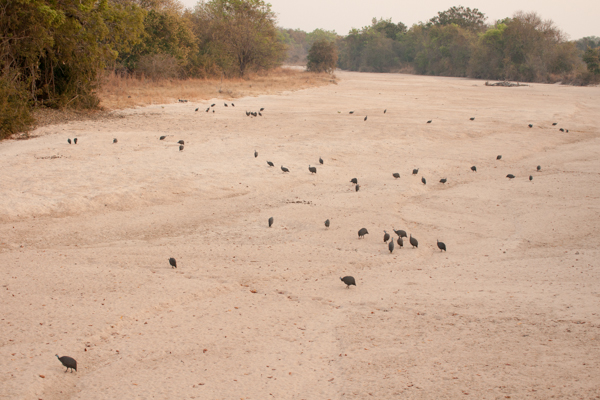
One of my favourite photos of the park.
